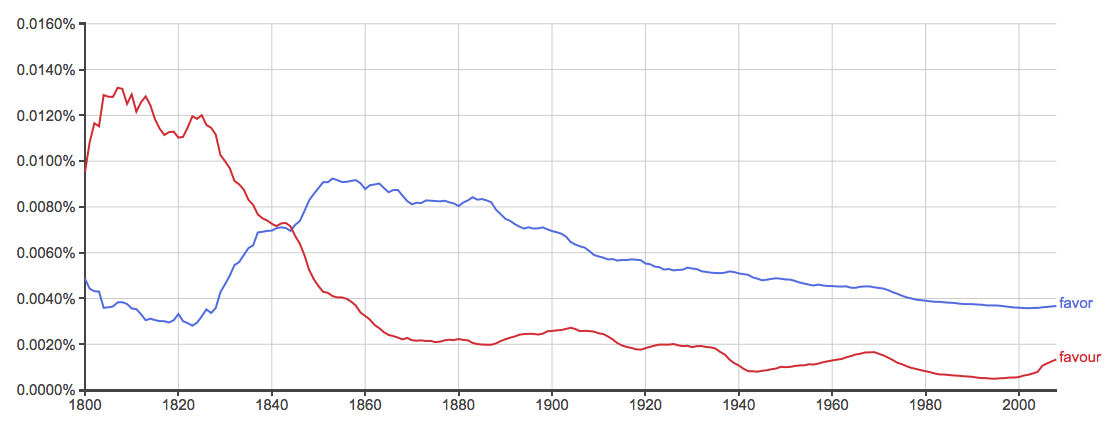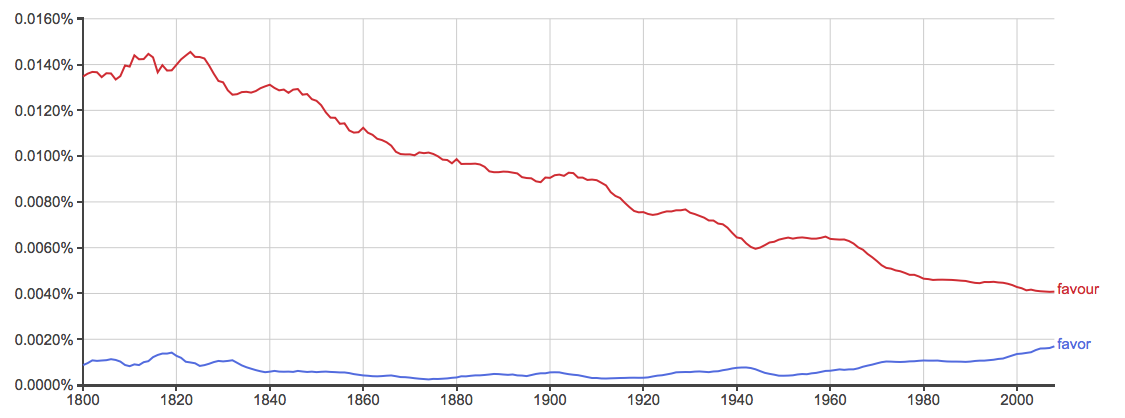Languages can shift over time, even in different parts of the world. Many differences in spelling and usage have grown prominent between British and American English. Favor and favour, for instance, are American and British English spellings of the same word.
Favour is the traditional spelling, still preferred in British English. Recently, however, Americans have dropped the U and begun spelling the word as favor. In the time since it became commonplace, this spelling has become accepted as correct in American English.
Even though both of these spellings are correct, depending on your audience, you will need to use one or the other.
What is the Difference Between Favor and Favour?
In this article, I will compare favor vs. favour, and I will use each in a sentence to illustrate how they are best used. Plus, at the end, I’ll tell you a helpful mnemonic to make it easier for you to remember which word to use.
When to Use Favor
What does favor mean? Favor became popular in American English relatively recently (around 1840), and it is now the preferred spelling in American English.
If you look at the above graph of favor vs. favour, you can see that once upon a time in American English, favour was the predominate spelling. This is no longer the case.

Favor can be a noun or a verb.
As a noun, it means preference or high regard. It is also another word for a small gift. Here are some examples:
- Peter found favor in the eyes of the Lord.
- I received a bottle opener as a party favor.
- Voters abandoned the disgraced candidate in favor of her rival.
- It takes many forms—direct subsidies, anticompetitive regulations, mandates, tax credits and carve-outs—all of which tip the scales in favor of established businesses and industries. –The Wall Street Journal
 As a verb, it means to prefer something or to treat something with care. In the second sense, favor especially refers to damaged body parts. This is what it looks like in a sentence:
As a verb, it means to prefer something or to treat something with care. In the second sense, favor especially refers to damaged body parts. This is what it looks like in a sentence:
- I favor the red guitar, while Mark prefers the black one.
- Julia favored her broken leg as she limped off the field.
When to Use Favour
What does favour mean? Favour is the older spelling of the same word. It was considered correct until recently, but now favor is the preferred spelling in American English, so much so that favour is considered a spelling error.
In British English, however, favour is still preferred.

The above chart graphs favour vs. favor in British English, and, as you can see, favour is still preferred, but favor appears to be gaining ground. Perhaps one day, the British will also choose favor over favour, but we aren’t there quite yet.
If you are writing for a British audience, you should use favour. You can use it the same way you would use favor. In the above sentences, substituting favour for favor would be correct in Britain.
- Now imagine a universe in which the shy and the introspective, the subtle and the reserved have all been phased out in favour of That Person: the kind who uses caps in emails and social-media acronyms in conversation. –The Telegraph
In American English, however, favour is at best considered pretentious or overly affected and at worst a spelling error. Stick with favor for American audiences.
Trick to Remember the Difference
 You should use favor with American audiences and favour with British audiences. You can remember the difference because favour has a U, and is preferred in the U.K.
You should use favor with American audiences and favour with British audiences. You can remember the difference because favour has a U, and is preferred in the U.K.
This trick should help you remember whether to use favour or favor in your writing.
Summary: Favour vs. Favor
Is it favor or favour? Favor and favour are two different spellings of the same word.
- Favour is the preferred spelling in British English.
- Favor is the preferred spelling in American English.
Since favor has a U, like U.K., you can fairly easily remember which is which. You no longer have to be one of the many writers who wonder whether to use favor or favour in your writing. If you still need help, you can refer back to this article for a refresher.
Contents
